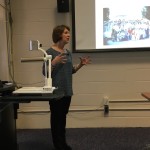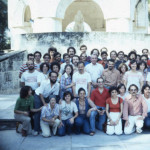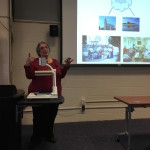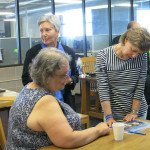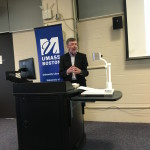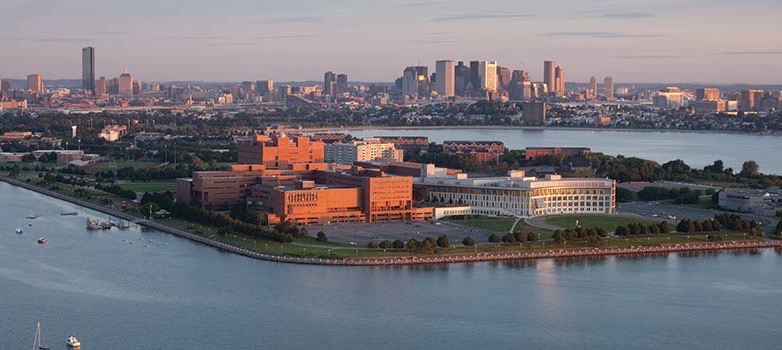
History of Cuban support groups’ archive inaugurated at UMass
BOSTON — Only one day after President Obama’s visit to Cuba, in a curious and happy coincidence, the University of Massachusetts inaugurated the Archive “Movement in support of Cuba by members of the Cuban diaspora in the U.S., Puerto Rico and other countries (1960s-1990s).” The event, at the University library, was as beautiful and touching as it was opportune.
Present as speakers and audience members were sizable numbers of Cuban-Americans who for decades had tried to achieve what that week seemed to symbolize: a respectful and normal relationship between the U.S. and Cuba that would be to the nations’ mutual benefit.
Also present was a large number of young students, as well as longtime participants in several organizations, such as the Socialist Cuban Youth, the magazine Areíto, the magazine Joven Cuba, the Antonio Maceo Brigade and the Cuban-American Committee for the Normalization of Relations with Cuba.
In addition to those organizations, efforts are ongoing to give a presence in the Archives to other organizations of a political, religious, social, cultural and/or charitable nature, in sum, to the whole gamut of organizations that, in the past several decades, have promoted a better relationship with the island and a reconciliation between Cuba and its émigrés.
Representing the university and reflecting the importance that it attaches to this Archive were the Vice Chancellor for Academic Affairs and Provost, Winston Langley; the Dean of Libraries, Daniel Ortiz; and the Chief Archivist, Joanne Riley. They had visited Cuba in early January, when they signed a collaboration agreement with the president of the prestigious Casa de las Américas, Roberto Fernández Retamar.
This agreement is extremely important and has a great historic value that goes beyond a record of political activities in favor of normalization, because it promises to become an important archive of Cuban emigration in all its manifestations of reconciliation with Cuba.
It is sufficient to quote some phrase from the accord, which says that this Archive is a “seminal project” with the broader objective of “carrying out cultural projects and activities and research for mutual benefit.”
Mariana Gastón, a retired public-school teacher from New York City and an activist for decades for scholastic improvement, as well as a member of the Maceo Brigade, Areíto and the Cuban-American Committee, delivered a summary of the threatening environment of the 1970s and ’80s, when it was not unusual for people to receive death threats for speaking out in favor of a dialogue with Cuba in Miami or New Jersey, the two largest Cuban population enclaves in the United States.
Mariana also evoked, with singular emotion, the growing need among the children of the Cuban migration in the ’60s and ’70s to engage with Cuba and understand why their parents emigrated, in addition to studying the complex reality of the Cuban Revolution. That has been a process of re-encounter that has gone on in one way or another with every migratory wave until today.
Miren Uriarte, a sociology professor at Boston University and an activist in several of the Cuban-American organizations, stressed the turmoil of those years, recalling that several Cuban-Americans had been the victims of terrorist attacks, among them many who died in Miami and New Jersey.
In particular, Miren and Mariana recalled the case of Carlos Muñiz Varela, who was gunned down in cold blood in Puerto Rico in April 1979. The case remains unsolved but the perpetrators are believed to be at large in Miami and Puerto Rico.
Carlos’ friends and relatives are trying hard to bring the culprits to justice and to lift the gigantic cover-up by the authorities in Washington and Puerto Rico at that time (and even today) involving the circumstances of the assassination.
In addition to their commentaries, Miren and Mariana invited members of the audience to remember that era through their testimony. Numerous participants did so, with emotional accounts of how difficult it was for us to revive our past and reconcile our parents and relatives.
In this quest, those groups formed a vanguard, so that many others can do the same today without fear and much better circumstances, better understanding their country of origin and helping toward a reconciliation.
Manuel Gómez, a retired Ph.D. in Public Health and specialist in occupational diseases, summarized the activities of the Cuban-American Committee for the Normalization of Relations with Cuba in the period 1976-87.
That committee, Gómez said, set important guidelines in the efforts within the diaspora to improve relations with Cuba, from the delivery to the State Department in 1979 of more than 10,000 signatures of Cubans in the U.S. in favor of normalization and the lifting of the trade embargo to the formation of a lobbying office, which oddly was achieved before the right-wing Cuban American National Foundation established its own.
Gómez ended by recalling that the committee and other organizations unintentionally contributed to catalyze a more understanding attitude among the authorities in Havana toward the émigré community.
Without boasting that its members were the only factors of influence in what today has become a swift and promising process of normalization between the two countries and between the island and the émigrés, the event served as a celebration of the efforts that are becoming, through the Archive, another step forward in that process.
Note: To get more information or to contribute to the Archive, please contact Mariana Gastón (marianagaston33@gmail.com) or Miren Uriarte (miren.uriarte@gmail.com)
[Photos courtesy of the Cuban Activists and Cuban Revolution collection at UMass.]


